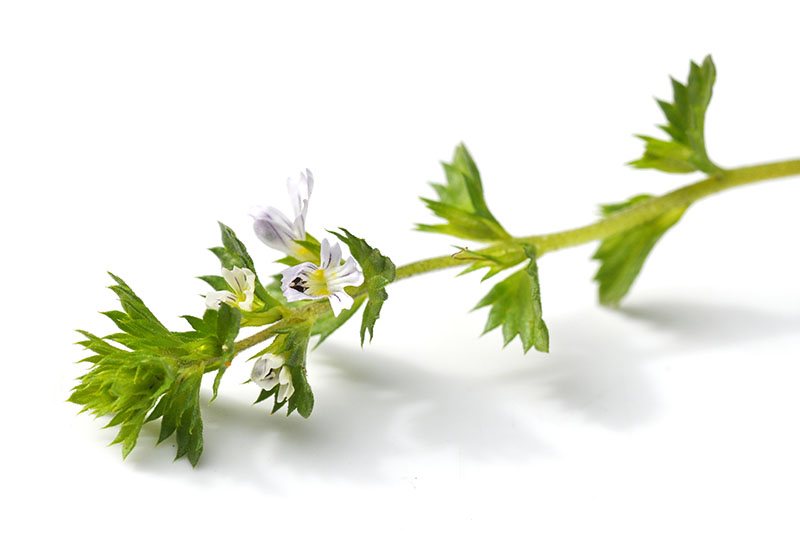Historic Uses of Eyebright Herb
Historically, eyebright has been revered for its medicinal properties, particularly in the realm of eye care. Eyebright can be traced back to ancient Greece, where it was used to treat various eye conditions. The famous herbalist Nicholas Culpeper, in the 17th century, praised eyebright for its efficacy in treating ailments like conjunctivitis, eye strain, and inflammation.
Medieval Europeans also employed eyebright to address a variety of health issues. The herb was used in poultices and washes to relieve eye discomfort and enhance vision. Additionally, its anti-inflammatory and astringent properties were believed to benefit respiratory conditions, such as colds and allergies.
In traditional folk medicine, eyebright was often combined with other herbs to create remedies for sinusitis, hay fever, and sore throats. Its application extended to topical treatments for skin irritations and wounds, showcasing its versatility as a medicinal herb.
Benefits and Uses of Eyebright Herb
Eyebright herb is renowned for its potential benefits, particularly for eye health. It contains various bioactive compounds, including flavonoids, tannins, and iridoid glycosides, which contribute to its medicinal properties.
- Eye Health: The most well-known use of eyebright is for promoting eye health. It is believed to help alleviate symptoms of conjunctivitis (pink eye), blepharitis (inflammation of the eyelids), and eye strain. The herb’s astringent properties can help reduce inflammation and soothe irritated eyes.
- Anti-inflammatory Properties: Eyebright’s anti-inflammatory properties make it useful for treating respiratory conditions such as colds, allergies, and sinusitis. It may help reduce nasal congestion and alleviate symptoms of hay fever.
- Antioxidant Benefits: The flavonoids present in eyebright have antioxidant effects, which can help protect cells from oxidative stress and support overall health.
- Skin Health: Eyebright can be used topically to address skin conditions like acne, rashes, and minor wounds. Its astringent and anti-inflammatory properties can help soothe and heal the skin.
- Digestive Health: Some traditional uses of eyebright include treating digestive issues such as indigestion and gastritis. The herb’s astringent qualities may help tone the digestive tract and alleviate discomfort.
What is Eyebright Herb?
Eyebright herb, scientifically known as Euphrasia officinalis, is a small flowering plant cherished for centuries for its medicinal properties. Native to Europe, Asia, and North America, eyebright belongs to the Orobanchaceae family. This herb is characterized by its small, white, or purple flowers with yellow spots and serrated leaves. Eyebright thrives in meadows, grasslands, and other sunny locations, often growing in association with grasses and other low-lying vegetation.
The plant’s name, “eyebright,” stems from its traditional use in treating eye-related ailments. It has been a staple in herbal medicine, particularly in European traditions, for its purported benefits to vision and overall eye health. However, eyebright’s uses extend beyond ocular health, offering a range of potential benefits supported by historical and contemporary herbal practices.
What Forms Does Eyebright Come In?
Eyebright is available in various forms, making it accessible for different types of use:
- Teas: Eyebright tea is a popular way to consume the herb. It can be made by steeping dried eyebright leaves in hot water. This form is often used for its mild flavor and potential benefits for eye and respiratory health.
- Tinctures: Eyebright herb tinctures are concentrated liquid extracts from soaking the herb in alcohol or glycerin. Tinctures are convenient for precise dosing and can be taken orally or added to water or tea.
- Capsules and Tablets: Eyebright is available in capsule or tablet form, providing a convenient way to take the herb as a supplement. This form is ideal for those who prefer a standardized dose and do not enjoy the taste of herbal teas.
- Eye Drops and Washes: Eyebright can be found in eye drop formulations or as an ingredient in herbal eye washes. These products are specifically designed for topical use to soothe and relieve eye discomfort.
- Poultices and Compresses: For topical applications, eyebright can be made into poultices or compresses by soaking the herb in hot water and applying it to the affected area. This method is often used for skin irritations and eye conditions.
Who Should Not Take Eyebright?
While eyebright is generally considered safe for most people when used appropriately, certain individuals should exercise caution or avoid its use:
- Pregnant and Nursing Women: Limited research exists on the safety of eyebright during pregnancy and breastfeeding. It is advisable for pregnant and nursing women to avoid using eyebright or consult a healthcare provider before use.
- Individuals with Chronic Eye Conditions: People with chronic or severe eye conditions should consult an eye care professional before using eyebright. Self-treatment with herbal remedies may not be appropriate for serious eye issues and could potentially worsen the condition.
- Allergic Reactions: Some individuals may be allergic to eyebright or other members of the Orobanchaceae family. To prevent adverse reactions, those with known allergies should avoid using eyebright herb.
- Medication Interactions: Eyebright may interact with certain medications, particularly those for eye conditions or blood-thinning medications. Before using Eyebright, it is important to consult a healthcare provider if you are taking any prescription medications.
Eye Health & Eyebright Herb
Eyebright herb, known for its traditional use in promoting eye health, offers a range of potential benefits supported by historical and contemporary herbal practices. From its anti-inflammatory and antioxidant properties to its applications for respiratory and skin health, eyebright remains a versatile and valuable herb in the world of natural medicine. Available in various forms, including teas, tinctures, capsules, and topical preparations, eyebright provides options for different preferences and needs. However, certain individuals, such as pregnant women and those with chronic eye conditions, should exercise caution and consult healthcare professionals before using eyebright. As with any herbal remedy, informed use and professional guidance are key to harnessing the benefits of eyebright safely and effectively.


Use Coupon Code: FREE
*Sorry, coupons can't be combined.